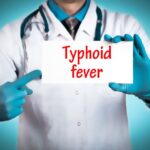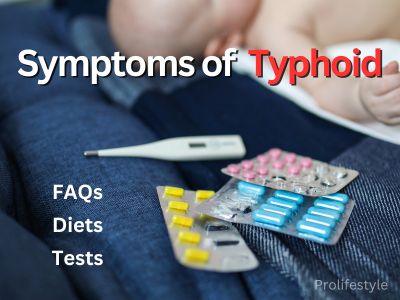
Typhoid fever caused by the bacterium Salmonella Typhi, remains a significant global health concern, particularly in regions with limited access to clean water and sanitation. This infectious disease can have serious implications if left untreated, making it crucial to recognize its symptoms early on. In this article, we will delve into the symptoms of typhoid, enabling you to better identify the warning signs and seek timely medical intervention.
1. Gradual Onset of Fever
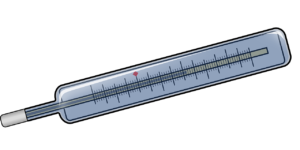
One of the primary indicators of typhoid fever is the gradual onset of persistent high-grade fever. Typically, the fever starts low and increases steadily over several days, reaching temperatures of 39-40°C (102-104°F). It is important to note that not everyone infected with Salmonella Typhi may experience a fever, making it crucial to consider other accompanying symptoms.
2. Weakness and Fatigue

Typhoid can cause extreme fatigue and weakness in affected individuals. This tiredness may be more pronounced despite adequate rest, leading to a general feeling of low energy and lethargy. If you find yourself unusually exhausted, it is important to be aware that this could be a symptom of typhoid fever.
3. Abdominal Discomfort
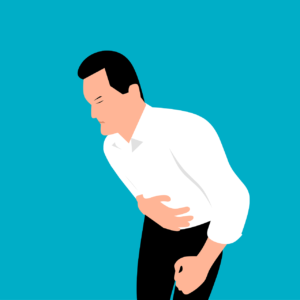
Typhoid fever often manifests with abdominal symptoms, which can mimic other gastrointestinal disorders. These may include abdominal pain, cramps, and tenderness. Some individuals may also experience a loss of appetite, leading to unintended weight loss. If you notice persistent abdominal discomfort along with other symptoms, it is crucial to consider the possibility of typhoid and consult a healthcare professional.
4. Headaches and Body Aches

Headaches and body aches are common symptoms experienced during the course of typhoid fever. The headaches can vary in intensity and may be accompanied by muscle pain and joint stiffness. These symptoms can make daily activities challenging and impact overall well-being.
5. Gastrointestinal Disturbances
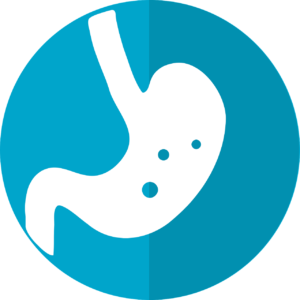
Typhoid fever affects the gastrointestinal system, leading to various digestive disturbances. These may include diarrhea or constipation, often alternating between the two. In some cases, individuals may experience a rose-colored rash known as “rose spots” on their abdomen, which can be an additional sign to look out for.
6. Respiratory Symptoms
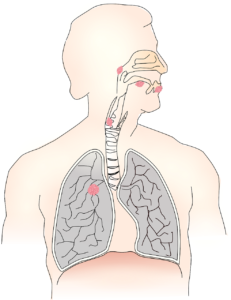
In rare instances, typhoid fever can manifest with respiratory symptoms such as a cough or a sore throat. These symptoms may be more common in younger children, highlighting the need for attentive observation and medical evaluation when respiratory issues arise.
Recognizing the signs and symptoms of typhoid fever is crucial for early diagnosis and prompt treatment. If you or someone you know experiences a persistent and high-grade fever, along with weakness, abdominal discomfort, headaches, and gastrointestinal disturbances, it is vital to consult a healthcare professional. Timely diagnosis and appropriate treatment, often involving antibiotics, can significantly reduce the risk of complications associated with typhoid fever.
FAQ's of Typhoid
1. What is one of the first signs of typhoid ?
The first sign of typhoid is a high fever, headache, body aches, and chills. Other symptoms may include diarrhea, vomiting, and orthorexia (an excessive appreciation of healthy foods).
If you think you might have typhoid, see your doctor as soon as possible for a diagnosis. Treatment usually involves antibiotics.
2. What are 4 causes of typhoid ?
Typhoid fever is a bacterial illness that can cause
A. Stomach pain,
B. Diarrhea, and
C. Vomiting.
Typhoid is a problem worldwide and it can be passed from person to person through contact with contaminated water, food, or objects.
There are 4 major causes of typhoid fever :
A. Salmonella typhi
B. Shigella dysenteriae
C. Campylobacter jejuni, and
D. Vibrio vulnificus.
3. What is the first stage of typhoid fever ?
Typhoid fever is a bacterial infection that can cause serious health problems, including inflammation of the bowel, pneumonia, and even death. If you think you may have typhoid fever, see your doctor as soon as possible for treatment.
4. What are 2 symptoms of typhoid fever ?
Typhoid fever is a serious bacterial infection that can be dangerous if not treated promptly.
Symptoms of typhoid include fever, muscle aches, headache, sore throat, and diarrhoea.
A diagnosis of typhoid fever is usually made by taking a culture from fluid that is coming from the intestines or blood. Treatment of typhoid fever generally involves antibiotics and rest.
5. What is best cure for typhoid ?
Typhoid is typically treated with antibiotics to eliminate the bacteria from the body and alleviate symptoms. The choice of antibiotics depends on the region and the susceptibility of the strain causing the infection. Mostly used antibiotics for treating typhoid some of them are mentioned below :
Ciprofloxacin: This antibiotic is often prescribed for uncomplicated cases and is effective against most strains of Salmonella Typhi.
Azithromycin: It is an alternative option for treating typhoid, especially in cases of antibiotic resistance or in patients who cannot take fluoroquinolones like ciprofloxacin.
Ceftriaxone: This antibiotic is typically used for severe or complicated cases of typhoid, as well as cases with suspected antibiotic resistance.
6. When is typhoid serious or not ?
Typhoid fever typically lasts for several weeks if untreated. A prolonged illness or a gradual worsening of symptoms can indicate a more serious infection.Typhoid can lead to serious complications if left untreated or if treatment is delayed.
Potential complications include intestinal perforation, gastrointestinal bleeding, peritonitis (inflammation of the abdominal lining), hepatitis (inflammation of the liver), and encephalitis (inflammation of the brain).
7. Which fruit is good for typhoid fever ?
During the recovery from typhoid fever, it is important to consume a nutritious and balanced diet to support the healing process and regain strength. While there isn’t a specific fruit that is considered a “cure” for typhoid, incorporating various fruits can contribute to overall health and provide essential nutrients. Here are some fruits that can be beneficial during the recovery phase:
Citrus fruits : Oranges, lemons, grapefruits, and other citrus fruits are rich in vitamin C, which supports the immune system and aids in the healing process.
Bananas : Bananas are easily digestible and can help replenish lost electrolytes due to diarrhea or vomiting. They also provide potassium, which is essential for maintaining proper hydration and muscle function.
Apples : It is a good source of fiber, which regulate digestion and prevent constipation. They also provide vitamins and antioxidants that support overall health.
Watermelon : Watermelon is hydrating and refreshing, making it a good choice to combat dehydration that can occur during fever. It also contains electrolytes and vitamins that aid in recovery.
Berries : Strawberries, blueberries, raspberries, and other berries are rich in antioxidants, vitamins, and fiber. Helpful in boosting immune system.
8. How is typhoid diagnosed ?
Here are the common methods used to diagnose typhoid :
A. Medical History and Physical Examination : The healthcare provider will review your symptoms, medical history, and conduct a physical examination. They will look for signs such as high fever, abdominal tenderness, and a characteristic rash known as “rose spots” on the abdomen.
B. Blood Tests : Blood tests are commonly used to diagnose typhoid fever, some of them are discussed below :
- Blood culture : A blood sample is collected and tested to identify the presence of Salmonella Typhi bacteria in the bloodstream.
- Widal test : This test measures the presence of antibodies against Salmonella Typhi in the blood. It can help confirm a recent or current infection, but it may not provide accurate results during the early stages of the illness.
C. Stool Culture : In some cases, a stool sample may be collected and tested to detect the presence of Salmonella Typhi bacteria in the feces. This test can be useful in identifying carriers of the bacteria.
D. Bone Marrow Culture : Bone marrow culture is considered the most sensitive test for diagnosing typhoid fever. However, it is an invasive procedure and is typically reserved for cases where the diagnosis is challenging or uncertain.
It is important to consult a healthcare professional for better understanding.
9. Which organ affects typhoid ?
The organs primarily affected by typhoid fever include :
- Intestines : Salmonella Typhi bacteria invade the intestinal wall, causing inflammation and damage. This leads to symptoms such as diarrhea or constipation, abdominal pain, and gastrointestinal disturbances.
- Lymphatic system : The bacteria can spread through the lymphatic system, leading to the involvement of lymph nodes throughout the body.
- Liver : The liver is often affected during typhoid fever. Inflammation of the liver, known as hepatitis, can occur and result in symptoms such as jaundice (yellowing of the skin and eyes), liver enlargement, and elevated liver enzymes.
- Spleen : The spleen, which is an important part of the immune system, can become enlarged and tender during a typhoid infection.
10. What food should be avoided in typhoid ?
During the recovery from typhoid fever, it is important to be mindful of your diet and avoid certain foods, here are some foods to avoid during typhoid :
1. Raw and Undercooked Foods : It is advisable to avoid consuming raw or undercooked foods, including raw fruits and vegetables, raw or partially cooked eggs, raw seafood, and unpasteurized dairy products. These foods may be contaminated with bacteria and increase the risk of infection.
2. Street Food and Unhygienic Food : Avoid consuming street food or food from unhygienic sources, as they may be prepared in unsanitary conditions and increase the risk of infection.
3. Spicy and Fried Foods : Spicy and fried foods can irritate the digestive system and worsen gastrointestinal symptoms such as diarrhea or abdominal pain. It is best to avoid or limit the consumption of these foods during recovery.
4. Caffeinated and Carbonated Drinks : Caffeinated and carbonated beverages can contribute to dehydration and may worsen gastrointestinal symptoms. It is advisable to opt for plain water, herbal teas, or rehydration solutions to stay hydrated.
5. Fibrous and Hard-to-Digest Foods : Foods that are high in fiber, such as whole grains, certain raw vegetables, and tough meats, can be difficult to digest and may aggravate gastrointestinal symptoms. It is better to opt for easily digestible foods during the recovery phase.
11. What if typhoid test is positive ?
Here’s what you should do if your typhoid test is positive :
1. Consult a healthcare professional : Schedule an appointment with a healthcare provider, such as a doctor or infectious disease specialist, to discuss your test results and receive proper guidance and treatment.
2. Follow the recommended treatment plan : Based on the severity of your infection and other factors, your healthcare provider will prescribe antibiotics that are effective against the specific strain of Salmonella Typhi in your case. It is important to take the prescribed antibiotics as directed, completing the full course of treatment to ensure the eradication of the bacteria.
3. Take necessary precautions : Typhoid fever is highly contagious. To prevent the spread of the infection to others, practice good hygiene measures such as frequent handwashing with soap and water, especially after using the bathroom. Avoid preparing food for others during your illness, and take care to properly sanitize any surfaces or utensils that may come into contact with contaminated materials.
4. Rest and stay hydrated : Adequate rest is essential for recovery. Make sure to get enough sleep and take time off from work or school as advised by your healthcare provider. Stay hydrated by drinking plenty of fluids, such as water, oral rehydration solutions, and clear soups, to replenish lost fluids and prevent dehydration.
5. Monitor your symptoms : Keep track of your symptoms and report any changes or worsening conditions to your healthcare provider. If you experience severe abdominal pain, persistent high fever, vomiting, or other concerning symptoms, seek medical attention immediately.
12. Can typhoid go away on its own ?
Typhoid fever is a serious bacterial infection that typically requires medical treatment to resolve. While it is theoretically possible for a mild case of typhoid to resolve on its own without treatment, it is not recommended to rely on the infection clearing without intervention. Without appropriate treatment, the bacteria can continue to multiply and cause more severe symptoms or complications.
Typhoid fever can be a life-threatening condition if left untreated or if treatment is delayed. Antibiotics are the primary treatment for typhoid fever, as they help eliminate the bacteria from the body and reduce the severity and duration of the illness. They also help prevent the development of complications.
13. How many days can typhoid last ?
Here are some general timelines related to the stages and duration of typhoid fever :
1. Incubation period : The incubation period of typhoid fever, which is the time between exposure to the bacteria and the onset of symptoms, is usually 6 to 30 days. It can vary based on individual factors and the infecting strain of Salmonella Typhi.
2. Early stage : The early stage of typhoid fever is characterized by non-specific symptoms such as fever, headache, fatigue, and gastrointestinal disturbances. This stage typically lasts for about 1 to 2 weeks.
3. Full course of illness : If left untreated, typhoid fever can persist for 3 to 4 weeks or longer, with symptoms gradually worsening over time. The fever may remain high, and other symptoms such as abdominal pain, rash, and delirium may develop.
4. Treatment and recovery : With appropriate treatment, which typically involves a course of antibiotics, the duration of the illness can be significantly shortened. Symptoms often start to improve within a few days to a week of starting treatment, and most individuals recover within 2 to 4 weeks.
It is important to note that individual cases can vary, and the duration of typhoid fever depends on factors such as the severity of the infection, individual immune response, and promptness of treatment.
14. Can we kiss during typhoid ?
Direct contact with saliva or respiratory droplets from an infected person, such as through kissing, could potentially pose a risk of transmission. Therefore, it is advisable to take precautions and avoid close contact until the infected person has completed a sufficient course of antibiotic treatment, is no longer shedding the bacteria, and has been cleared by a healthcare professional.
15. Is typhoid spread by coughing ?
Yes, it is important to note that direct person-to-person transmission of typhoid through respiratory droplets is uncommon compared to the fecal-oral route of transmission.
16. What are the worst symptoms of typhoid ?
There are several worst symptoms of typhoid fever some of them are listed below check it carefully and take the proper medication symptoms are matched :
- High Fever up to 103-104°F
- Abdominal Pain
- Rose Spots
- Weakness and Fatigue
- Headache
- Muscle Aches
- Loss of Appetite
- Mental Confusion
- Enlarged Spleen and Liver
Typhoid fever can be a life-threatening condition if not promptly and appropriately treated with antibiotics. If you suspect you or someone else may have typhoid fever, seek medical attention immediately.


